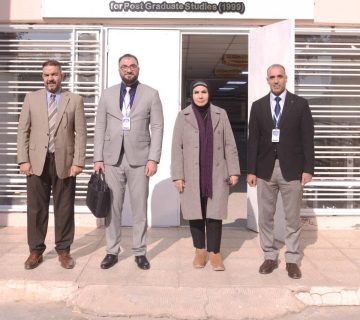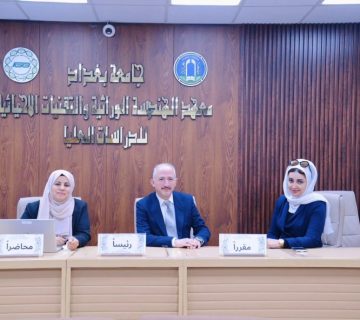The Institute of Genetic Engineering and Biotechnology for Postgraduate Studies at the University of Baghdad organized a scientific symposium titled:
“Genetic Differences and Intelligence.”
The symposium was presented by Assistant Professor Dr. Sana Jasim Kazem, the rapporteur of the Genetic Engineering Department, and was chaired by Professor Dr. Basma Qasim Hassan, with Assistant Professor Dr. Hamsa Ahmed Jasim as the session’s rapporteur.
Symposium Objectives
The symposium aimed to highlight genetic studies that have demonstrated how intelligence is influenced by genetic factors. It explained that there is no single “intelligence gene”; instead, intelligence results from the interaction of hundreds of genes with environmental factors.
Key Insights
The symposium revealed that key genes linked to intelligence, such as CHRM2 and HMGA2, play a role in brain development, memory, and analytical thinking.
It was discussed that genetics contribute between 50% and 80% to intelligence, while environmental factors account for the remaining influence.
Recommendations
- Support scientific research that focuses on improving education and understanding the interaction between genes and the environment.
- Enhance early childhood nutrition and cognitive training programs to foster psychological and intellectual development.
- Establish ethical and legal frameworks to regulate the use of genetic modifications aimed at enhancing intelligence.










